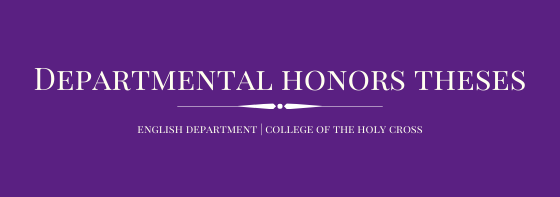
Date of Creation
5-2020
Document Type
Departmental Honors Thesis - Restricted Access
Department
English
First Advisor
Melissa Schoenberger
Abstract
Liberty, even as a mostly political concept, gained historical and diplomatic footing not from political and philosophical prose alone, but also from poetic writing, especially in periods during which poetry was expected to be political. Though writers like Thomas Hobbes (1588-1679) and John Locke (1632-1704) are most frequently cited as among the most influential political writers of the English Civil War era, John Milton (1608-1674) and John Dryden (1631-1700) capture the sociopolitical tensions of the era in ways equally significant. A century after the period of political strife that marked the careers of Milton and Dryden, American Founding Father John Dickinson expressed his ideal vision of liberty via letter and lyric. Poetry, rather than prose, was the vehicle for these ideas and suppositions.
This thesis proposes that poetry, a form of writing “ubiquitous” to the political process, should receive similar scrutiny and veneration as political prose. Just as the concept of liberty is not confined to any one time, place, or people, the formats used to grapple with its meaning and rectify its shortcomings ought not be limited or restricted. Writing, like liberty itself, is ever-present, and its scope, context, and circumstances know no bounds.
Recommended Citation
Brennan, Seamus, "Writing Revolution: Tracing the Origins of Liberty and Tyranny in English and American Literature" (2020). English Honors Theses. 4.
https://crossworks.holycross.edu/engl_honor/4


Comments
Included in 2020 Virtual Academic Conference.